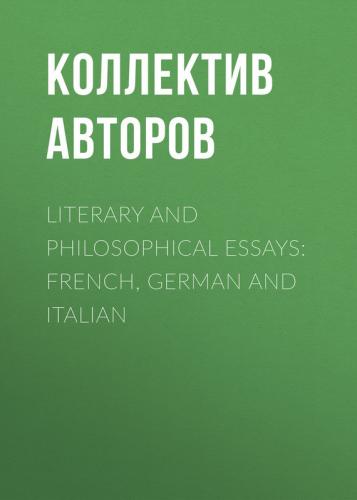Vdum et molle lutum est, nunc nunc properandus, et acri
Fingendus sine fine rota.
He's moist and soft mould, and must by and by
Be cast, made up, while wheele whirls readily.
We are taught to live when our life is well-nigh spent. Many schollers have been infected with that loathsome and marrow-wasting disease before ever they came to read Aristotles treatise of Temperance. Cicero was wont to say, "That could he out-live the lives of two men, he should never find leasure to study the Lyrike Poets." And I find these Sophisters both worse and more unprofitable. Our childe is engaged in greater matters; And but the first fifteene or sixteene yeares of his life are due unto Pedantisme, the rest unto action: let us therefore imploy so short time as we have to live in more necessarie instructions. It is an abuse; remove these thornie quiddities of Logike, whereby our life can no whit be amended, and betake our selves to the simple discourses of Philosophy; know how to chuse and fitly to make use of them: they are much more easie to be conceived than one of Bocace his tales. A childe comming from nurse is more capable of them, than he is to learne to read or write. Philosophy hath discourses, whereof infancie as well as decaying old-age may make good use. I am of Plutarkes mind, which is, that Aristotle did not so much ammuse his great Disciple about the arts how to frame Syllogismes, or the principles of Geometric, as he endevoured to instruct him with good precepts concerning valour, prowesse, magnanimitie, and temperance, and an undanted assurance not to feare any thing; and with such munition he sent him, being yet verie young, to subdue the Empire of the world, only with 30000 footmen, 4000 horsemen, and 4200 °Crownes in monie. As for other arts and sciences; he saith Alexander honoured them, and commended their excellencie and comlinesse; but for any pleasure he tooke in them, his affection could not easily be drawne to exercise them.
– petite hinc juvenesque senesque
Finem animo certum, miserisque viatica canis.
Young men and old, draw hence (in your affaires)
Your minds set marke, provision for gray haires.
It is that which Epicurus said in the beginning of his letter to Memiceus: "Neither let the youngest shun nor the oldest wearie himselfe in philosophying, for who doth otherwise seemeth to say, that either the season to live happily is not yet come, or is already past." Yet would I not have this young gentleman pent-up, nor carelesly cast-off to the heedlesse choler, or melancholy humour of the hasty Schoole-master. I would not have his budding spirit corrupted with keeping him fast-tied, and as it were labouring fourteene or fifteene houres a day poaring on his booke, as some doe, as if he were a day-labouring man; neither doe I thinke it fit, if at any time, by reason of some solitairie or melancholy complexion, he should be scene with an over-indiscreet application given to his booke, it should be cherished in him; for, that doth often make him both unapt for civill conversation and distracts him from better imployments: How many have I scene in my daies, by an over-greedy desire of knowledge, become as it were foolish? Carneades was so deeply plunged, and as I may say besotted in it, that he could never have leasure to cut his haire, or pare his nailes: nor would I have his noble manners obscured by the incivilitie and barbarisme of others. The French wisdome hath long since proverbially been spoken of as verie apt to conceive study in her youth, but most unapt to keepe it long. In good truth, we see at this day that there is nothing lovelier to behold than the young children of France; but for the most part, they deceive the hope which was fore-apprehended of them: for when they once become men, there is no excellencie at all in them. I have heard men of understanding hold this opinion, that the Colleges to which they are sent (of which there are store) doe thus besot them: whereas to our scholler, a cabinet, a gardin, the table, the bed, a solitarinesse, a companie, morning and evening, and all houres shall be alike unto him, all places shall be a study for him: for Philosophy (as a former of judgements, and modeler of customes) shall be his principall lesson, having the privilege to entermeddle her selfe with all things, and in all places. Isocrates the Orator, being once requested at a great banket to speake of his art, when all thought he had reason to answer, said, "It is not now time to doe what I can, and what should now be done, I cannot doe it; For, to present orations, or to enter into disputation of Rhetorike, before a companie assembled together to be merrie, and make good cheere, would be but a medley of harsh and jarring musicke." The like may be said of all other Sciences. But touching Philosophy, namely, in that point where it treateth of man, and of his duties and offices, it hath been the common judgement of the wisest, that in regard of the pleasantnesse of her conversatione, she ought not to be rejected, neither at banquets nor at sports. And Plato having invited her to his solemne feast, we see how kindly she entertaineth the companie with a milde behaviour, fitly suting her selfe to time and place, notwithstanding it be one of his learned'st and profitable discourses.
AEque pauperibus prodest, locupletibus aque,
Et neglecta aeque pueris senibusque nocebit.
Poore men alike, alike rich men it easeth,
Alike it, scorned, old and young displeaseth.
So doubtlesse he shall lesse be idle than others; for
